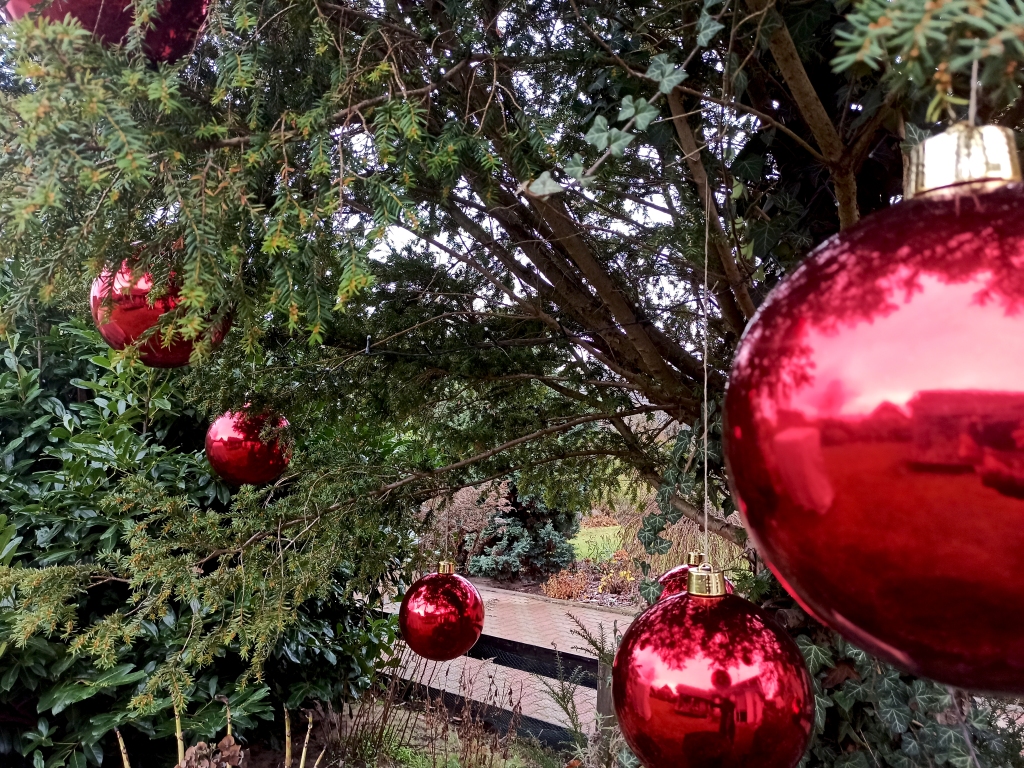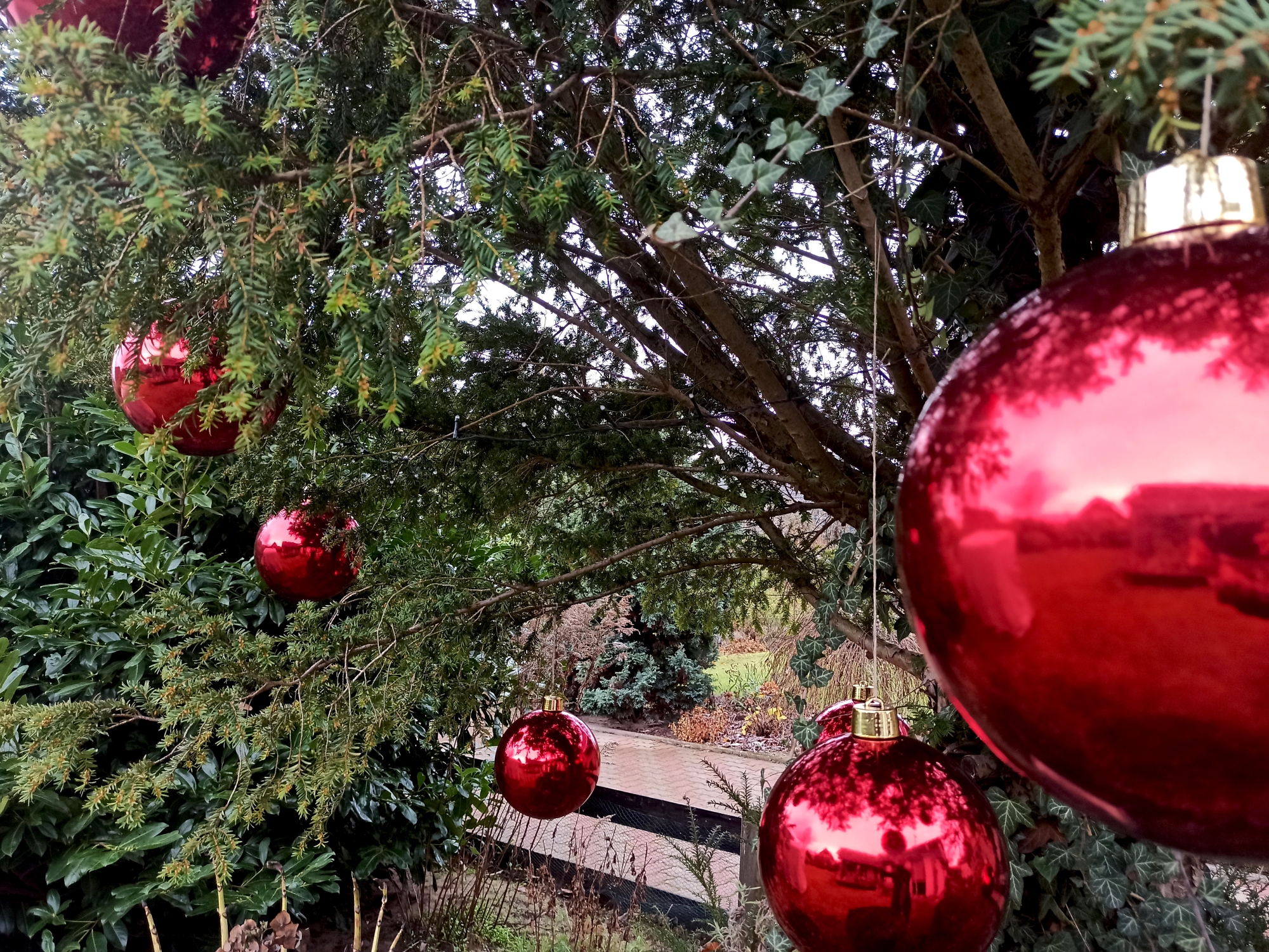
Only four days left and its Christmas! Yes, in Continental Europe we celebrate Christmas on the 24th, not the 25th. To get us into the final Christmas spirit, we light the fourth candle of our advent wreath today and start wrapping the first presents.
While Scotland might have the better Christmas songs, we enjoy the many traditions we have before and after Christmas. In one of our previous articles we already introduced you to the many traditions we celebrate during the first four December weeks. In this article, we’ll show you how we celebrate Christmas and that it doesn’t end on the 24th.
24th December
Finally, the big day arrives on the 24th of December. Yes, we do Christmas before you guys. In the morning, people usually decorate their tree with ornaments inherited from distant relatives. Average age of a bubble is about 45 years and they are in all sorts of forms and shapes from various birds to chimney sweepers. Although it’s our Christmas Day, there’s one big annoying thing about 24th. Which is that you are expected to feast until dinner. As a child, you are told that those who manage not to eat anything the whole day will be rewarded by seeing zlaté prasátko (a golden pig). I can tell you that this is a straight-up lie. There’s no such thing as zlaté prasátko. It’s just your grandpa, creating a reflection with a small mirror hidden under the table. It took me about seven years to find out.
But don’t get annoyed, there are all sorts of actives that you can get entertained with while you starve! I chose the top four for you:
1. Cutting an apple – take a fresh apple and cut it horizontally into two halves. When you look at the inside of the apple, the seeds should form a little star. This means you will be in good health for the next year. No star means… no health, I guess? Adult supervision highly recommended.
2. Molybdomancy – my personal favourite! A technique of divination using molten metal, practised on Christmas day to reveal your future. Most people melt lead in a tin and then drop it into water. Great fun when supervised by an adult. Potential fire hazard.
3. Throwing a shoe – take a shoe and throw it over your shoulder. If it lands with its tiptoe facing the door, you will leave the house within the next year. If it lands with the heel closer to the door, you’re staying with your parents. Previously used to forecast marriages (for girls) and university studies (for boys). You can use any shoe you like, in my experience slippers work the best because they fall flat and don’t end up on the side as often as trainers. No supervision needed.
4. Walnut boats sailing – you will need some walnut shells, small candles, skewers or thin wooden sticks and a large bucket (you can also use a bathtub). Create little boats by attaching candles into the shells (light on a candle and let a bit of wax drip into the shell, then position the candle on the hot wax). Place your boat on the water and watch the way it sails – it’s behaviour will predict your life for the next year. Great fun, supervision recommended.
After all that pagan witchcraft, the big dinner commences around six o’clock. And here comes another shocker for you – the menu is nothing that you’d expect. First, a soup is served – there are no rules for the specific type as far as I’m aware. I’m from the mountains so we would have a chunky mushroom soup with homemade noodles. My mum grew up in the south, so she’d insist on having a fish soup with croutons (yuck!). Certain regions also have bread soup or sour cabbage soup. However, the main dish remains the same for everyone – breaded fish with potato salad. Imagine fish and chips, but you’re only allowed to eat it once a year. Of course, our potato salad is nothing like chips. First of all, it’s cold and full of all sorts of vegetables like carrots and peas. Each family has a secret recipe, for example, we use a few slices of apple to balance the harshness of raw onion. Gherkins are mandatory.
After the main course, everyone can have some Christmas cookies, but most of the participants under the age of sixteen are nervously twitching at the table. Another shocker for you – we can open our presents on Christmas Eve! I suspect it’s to make the kids behave during the dinner, but any Christian would tell you it’s because Jesus was born that very night. Which leads me to another shocker – in Eastern Europe, it’s not Santa who brings you present, but Baby Jesus. Which doesn’t really make sense considering the Czech Republic is one of the least religious countries in the world, but hey, we love our traditions. More east you go, more wild things get. In Russia, they get their presents brought by Ded Moroz (Father Frost).
The dinner is eaten, and the presents are opened. Now everyone’s off to watch the premiere of the latest Czech fairy-tale on the TV. Needless to say, they are usually rubbish, but an honourable mention goes to Anděl Páně (An Angel of the Lord) which is class (we’re really not that religious, I swear).
25th & 26th December
The next day, which is the UK’s Christmas day, is something we call Boží hod vánoční, and it’s usually filled with family visits, mulled wine and friends you’d meet at the local Christmas market. You can just let yourself drift on the Christmas atmosphere without the stress of the previous day. The following day, which is Boxing Day in the UK, is actually called Svatý Štepán (Saint Stephen’s Day). As far as I know, there are no particular traditions associated with this day. Our family tradition was to go ice skating or cross-country skiing to “release the potato salad energy”.
31st December
Although the following days are not considered the national holiday, most people are off work and spend time chilling before the 31th of December. Traditionally, many people would travel to the mountains to celebrate Silvester (Hogmanay or New Year’s Eve) with their friends at chat (cottage). This adventure usually includes a lot of skiing and a lot of alcohol. There’s no such year starting off a New Year with a terrible hangover on a ski slope.
6th January
Hold on, this is not the end. Christmas is officially not over until the 6 January. Tří Králové (Three Kings’ Day, or Epiphany) commemorates the Three Kings’ visit of the Baby Jesus. Also, the superstition says that you shouldn’t leave Christmas decorations hanging after this day. On the day, people’s houses are visited by the Three Kings who bless their homes and chalk the door with their initials. One of the more extreme traditions is Tříkrálové plaván – an outdoor Winter swimming. January is the coldest month of the year, and temperatures tend to fall to minus 20 degrees during the day, so you can imagine that it’s not an overly popular tradition. Unless you’re Russian.
And that’s all. I’ll be spending my Christmas in Glasgow for the sixth year in a row, having a stuffed turkey and a nut roast, happily opening my presents on the 25th. I might miss some of the traditions we have back home, but who says I can’t make some cukroví and wash it down with my whisky eggnog? Cause it the end, it’s not about where you are, but who you are with.
Have a lovely Christmas everyone! – from the Continentals in Scotland.

